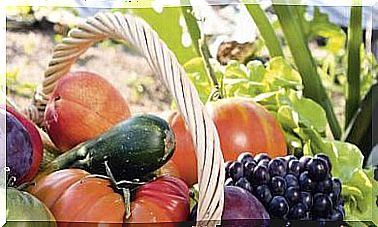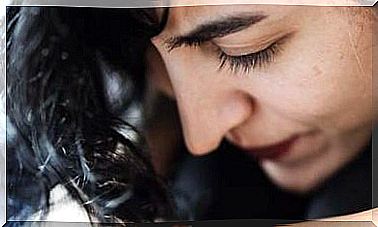The Pandemic Alerts Us To The Need To Change
We are experiencing the imbalance that we have been sowing. In the short term, we will have to learn to live with less: with fewer things, fewer distractions, and less fear. And we will have to learn to live with more: with more attention, more confidence in reality and in life, more discernment, compassion and awareness.

The pace of the world has changed due to the pandemic. It has become slower and more serious, more full of silences, sometimes disturbing, sometimes beautiful. The silence was already there, but we had been forgetting it, hiding it behind screens and words not always necessary. The silence, yes, it was already there. And silence is not mute: silence speaks. What lessons have these silences taught us?
- We are nature. Our health reflects the health of the biosphere. The better our balance with the web of life, the better our health will also be. We are microcosm of the biosphere.
- Earth is alive. It has been perceived by all indigenous peoples (Mother Earth, Pachamama) and timidly begins to rediscover science (Gaia theory). Everything that lives, from the smallest cell, has a vital intelligence. Everything alive knows what it does. And the Earth knows what it is doing … for the common good of life and not of those who exploit it. Better to connect with the Earth than with the news.
- We humans were overvaluing ourselves. That a virus puts the system in check is a lesson in humility for human arrogance that, for centuries, has endeavored to substitute the natural for the artificial, the vital for the mechanical, the concrete for the abstract. Today we have to turn our course, from a holistic vision, and go towards a world centered on people and relationships, in which we can feel that we participate in the web of life and we can recover our amazement at existence.
- The stop, the silence, has an existential dimension. It is an invitation to ask ourselves what we have come to do in the world, why are we here, what we really want to do with our lives so that, the day we leave this world, we feel satisfied with what we have done and what we have done. tried to do. To find a purpose, we must learn to listen to our inner voice. Not the chatter of the mind, often redundant, but something deeper than in many cultures is associated with the heart.
- The feeling that we are finite and separate beings is an illusion. Einstein realized, wise men of all cultures and times realized. We realize? Between you and the rest of the world there is never, never was, any separation.
- The origin of the vast majority of problems lies in the human mind. The interior is prior, it is at the base. Our actions, attitudes and perceptions spring from the ecosystem of our mind. Our outer world reflects our inner world.
Throughout history, every great idea, every great action, and every great creation has grown out of moments of silence, of listening. Music arises from silence and inspiration comes. When, collectively, we enter a great period of silence, the possibility of transforming our ideas, actions and collective creations opens up.
The path to a healthier, wiser and more ecological society does not pass through the troubled river of distractions, but through inner silence. There are people who these days have decided to leave the city, return to the town or go to the country. Perhaps, through silence, they have heard the call of nature.
Silent Spring: The Origin of Ecological Awareness
Biologist Rachel Carson published Silent Spring in 1962. It was the first spark that illuminated contemporary ecological consciousness. Its title referred to the impact of chemical substances on the web of life and specifically on birds. If it continues like this, one day there will be no more birds singing in the spring. In part thanks to his book, the use of DDT was almost completely banned within a few years after his death.
We have lived a silent spring, with less noise from machines and engines. On the other hand, the song of the birds has not disappeared, but has even increased. Still, as is often the case, Rachel may have been wrong about the details, but she was right at the heart of the matter: we are destroying the web of life.
Almost sixty years ago, Rachel Carson claimed that humanity faced an unprecedented challenge (today, even more so). And that it was time to show our maturity. And he also said that we had to demonstrate our ability to dominate, not over nature, but over ourselves. That is what it is all about.
Time is money, said Franklin. Today gold is our attention span, and the tech industry extracts that gold every time we touch a key. Use our data to know where we are, deduce what we do and what we want to do. It had been the fastest growing industry for years, and now it has been enthroned by the rise of screens. Screens that often screen reality … cover it up.
If education moves from classrooms to screens, multinationals are enriched and education is impoverished. In dozens of areas, with the excuse of protecting the most vulnerable, the most powerful are reinforced. Less face-to-face communication and education, less neighborhood commerce, and more power for Google, Microsoft, Amazon, and more.
Attention, in any case, is our most precious asset.
At the moment of death, the set of what we have lived will equal the set of what we have paid attention to. Through our attention we create our world, moment by moment. And with our collective attention, we create our collective world. Therefore, attention to attention.
Disease and death are part of a living world
A pandemic that does not remit is the fragmentation of knowledge: the inability to appreciate the network of relationships that constitutes every reality, every situation and every person. All that lives is relationship. But modern thought thinks it progresses the more it dissects and reduces everything to figures and static and isolated fragments.
Every day around 25,000 people die from malnutrition and another 25,000 from pollution (according to FAO and The Lancet, respectively). Fifty thousand, each day, and the next. And another hundred thousand, every day, for other reasons. The figures of a disease should not make us forget that there are many other causes of death, every day, everywhere. Nor should they make us forget that death is part of life. Each day, and the next, there are also more than 360,000 births in this world of sunsets and sunrises.
But today it turns out that in every scientific discipline, the deeper we go, the more what we cannot explain increases. We can (to some extent) manipulate cells, but no one can really explain what makes a cell alive. We know that light behaves as a wave or as a particle, but no physicist can really explain what light is. Nor is there a biologist who knows how to explain what life is. And that’s okay, because life doesn’t have to be explained, but rather lived.
How would we understand health from a less fragmented perspective? We would focus more on the qualitative and the emotional and social dimension of health. We would see the disease less as a sum of symptoms and more as a pattern of imbalance – the result, generally, of other imbalances, in our personal or environmental surroundings.
We would put less emphasis on genes and pathogens and pay more attention to context: the external environment and the internal environment, strengthening the immune system. We would take more care of prevention and our habits of physical health (your body, what does it eat, how does it move?) And psychological health (is it true, beautiful and good what we let enter our mind?). We would see health as a dynamic network of relationships. And we would rediscover that we are part of a living and meaningful world.
A pandemic can be part of a hidden harmony
This year started with the Dantesque fires in Australia. Then we live the Gloria, not Vivaldi’s, but the disharmony of inclement weather. The pandemic may be the third movement, and not the last, of this disturbing music whose harmony we still do not perceive.
Hidden harmony is stronger than visible harmony, Heraclitus taught.
The contemporary Tower of Babel, that of Materialism, Ecocide and Narcissism (acronym MEN) begins to crack. And it does well, to cover up its cracks, to divert attention to a disease so modern that it has a password. The biggest crack is the fact that economic growth had its days numbered, because we had been crashing against the ecological and geological limits of the Earth for some time (climate change is only the tip of the iceberg).
The Tower of Babel will try to prop itself up as it can, extending digital, police or insane tentacles, but the seismic movements of the Earth and life will end it, sooner or later. His collapse will do damage, but more damage was done upright. And, breaking the asphalt, life will sprout again.









